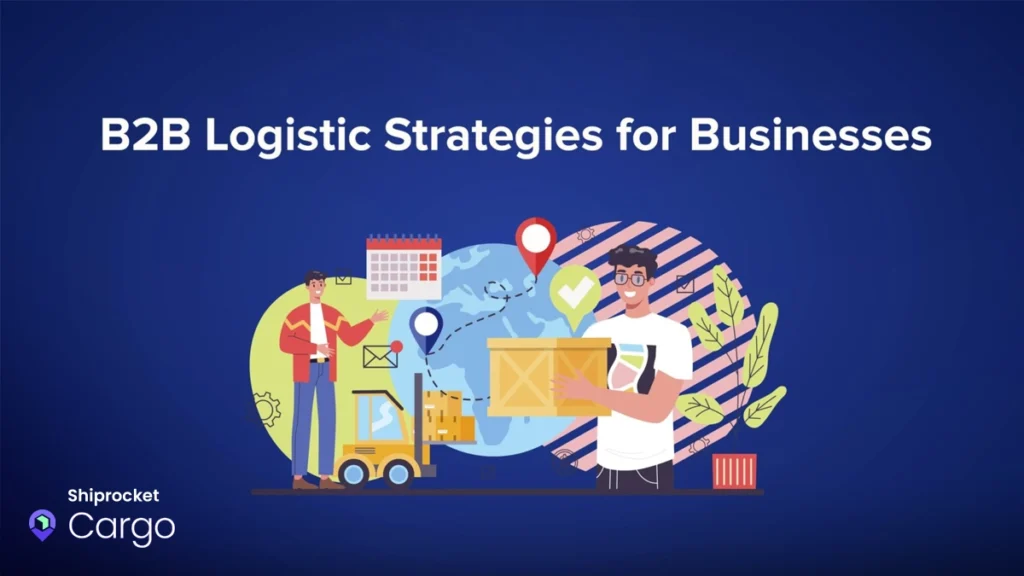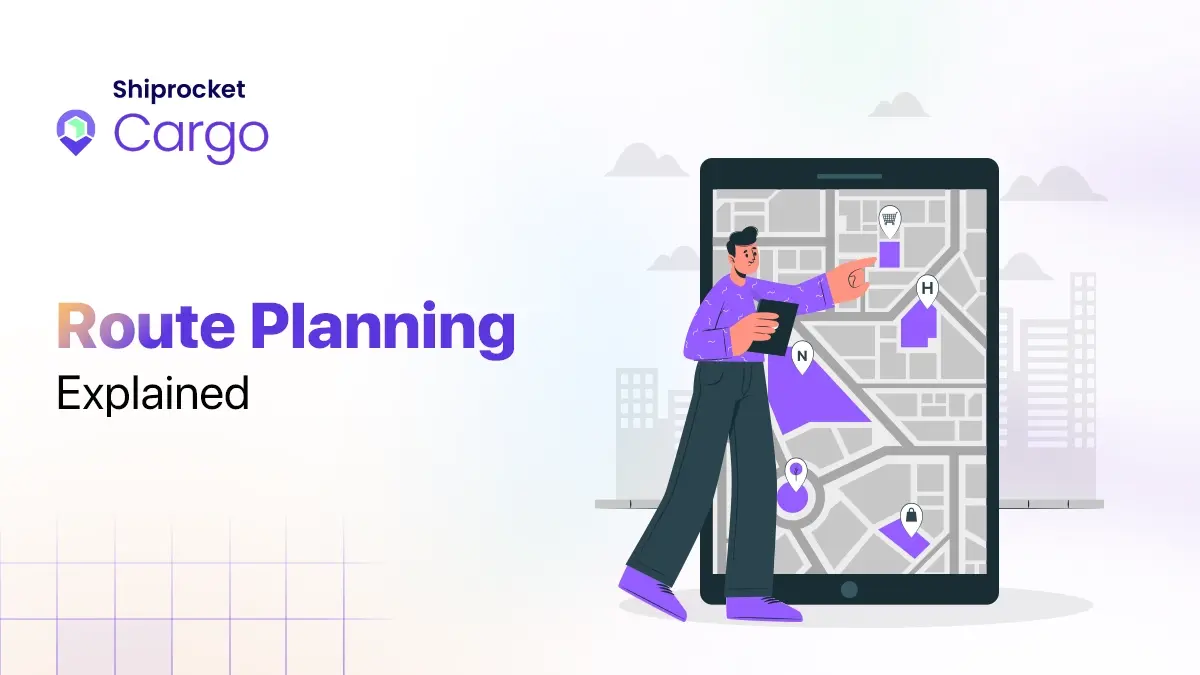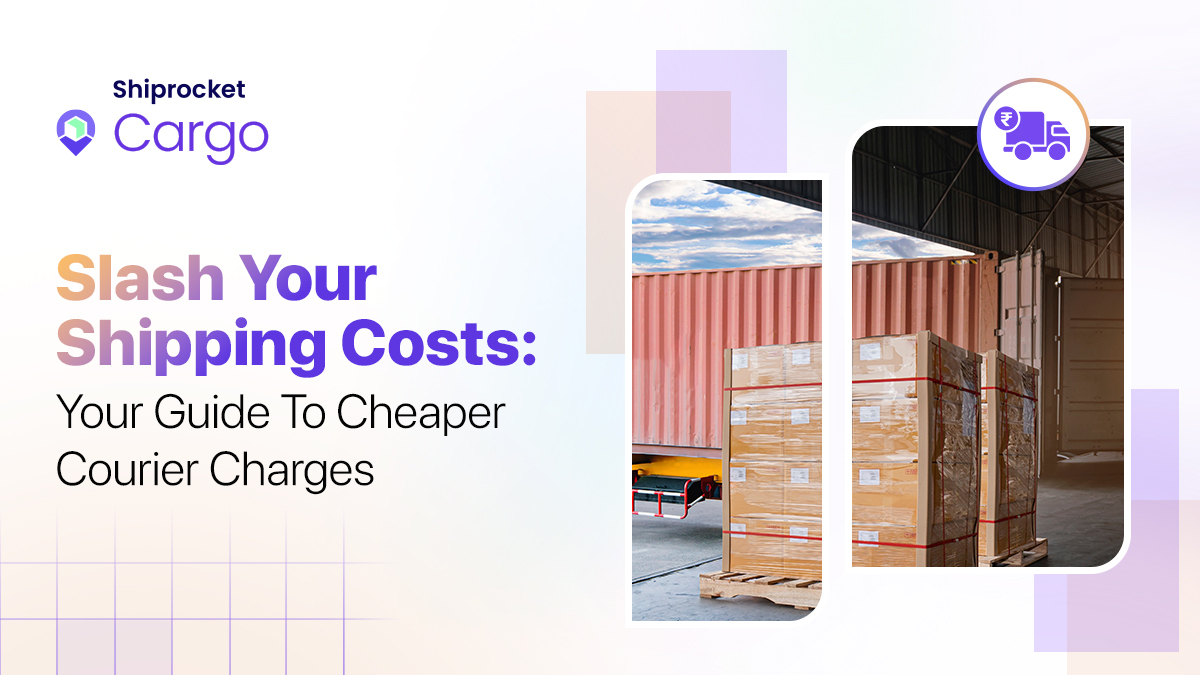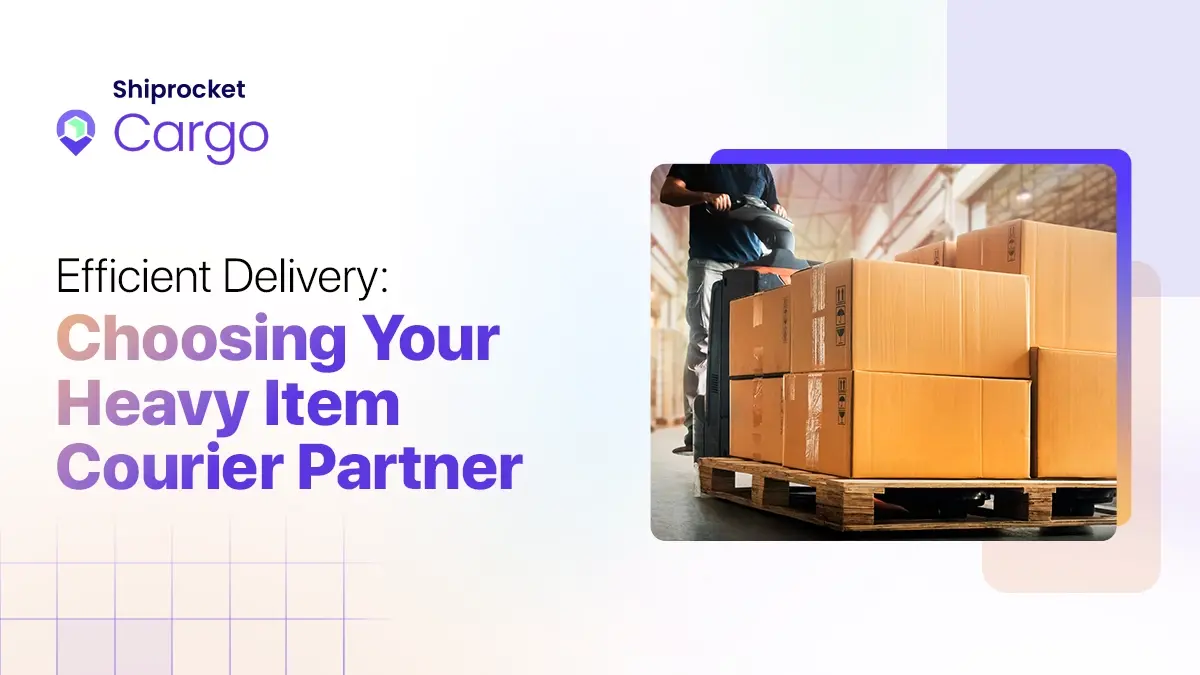Effective B2B Logistic Strategies for Competitive Growth

The logistics industry plays a crucial role in the growth of the Indian economy. Be it the transportation of raw materials to the manufacturers or the dispatch of final products to the end customer, the entire transit is taken care of by the logistics industry. According to a report by Statista, the Indian logistics market is projected to grow to $380 billion by the end of 2030 with an expected CAGR of 12%.
For an organization offering multiple products to customers, it’s crucial to ensure the quality of delivery is maintained by implementing effective logistic strategies. The even more significant challenge for these businesses is to manage a complex, fluid, and fluctuating supply chain to cater to the dynamic demands of the customer while maintaining their edge in the competition.
Organizations must have a sound B2B logistics strategy to cater to the challenges mentioned above for a successful and profitable business.
What is B2B Logistics?
When a business provides products, including raw materials, packaging materials, or final products, to another business entity, transporting goods between the two business bodies is known as business-to-business logistics or B2B logistics. Most businesses rely upon service providers to ensure they can deliver a positive customer experience. They count on third-party suppliers, 3PL distributors, and an efficient customer support team to resolve all customer queries.
How is B2B Logistics Different from B2C Logistics?
The Indian eCommerce market is primarily segmented into business-to-business (B2B) and business-to-customer (B2C). These two segments are different from each other. The b2b refers to transactions between two businesses, whereas b2c describes the transactions between a company and its customers.
Since both business models are different, it is evident that their logistics will also be different in terms of operations, payment, and final destination of the products. To get a clear picture of the operation of B2B logistics and B2C logistics, let’s look at their specific points.
| B2B Logistics | B2C Logistics |
| Refers to the transport of goods and products between business entities. | Refers to transporting goods and products between a business and end customers. |
| Shipments typically include heavy, large, and multiple products. | The range of the shipment size typically depends on the order placed by the customer. |
| Instead of products, the organizations focus on the relationship with their clients. | The products are a significant focus during the delivery process. |
| Time taken in B2B logistics is relatively high as the shipments are in bulk. | The order can be delivered as quickly as 24 hours. |
How can Businesses Ensure to have Seamless B2B Logistics?
Now handling b2b logistics can be quite challenging. The business must have a full-proof roadmap to ensure their products are delivered to the clients on time with minimum to no damages. So, what should an optimal b2b logistics roadmap look like? Let’s find out:
Efficient Route Management
The b2b logistics is generally carried out by trucks that come under heavy vehicles as per the government guidelines. Specific routes are closed during a particular time; a road is closed due to construction or maintenance, or a festive progression blocks the street to the destination. These challenges can occur anytime while the truck is en route to either pickup or delivery. As a result, the businesses (the seller and the client) might face difficulty fulfilling their commitments towards pick up and delivery.
To overcome such challenges, businesses must use a robust route optimization system to organize their routes. Firms should implement tech-enabled GPS-powered route optimization systems that can notify businesses and truck drivers about the road conditions en route to their pickup or drop location.
Seamless Delivery Tracking
The main goal of a business is to deliver the order on time to the client’s location. However, to ensure a better business-client relationship is maintained, businesses must provide seamless delivery tracking.
The tracking updates provided by the logistics companies can be relayed to the client to ensure the truck is allowed to unload at the location effortlessly. Organizations can either give these updates via logistics companies or use tech-enabled delivery tracking systems by companies such as Shiprocket Cargo.
Robust Order Management
To have a sound b2b logistics strategy, businesses must manage their orders correctly. However, manual order management can be daunting in b2b eCommerce. This is because the shipments in b2b are in large quantities and manually managing each order is pretty challenging.
The solution to this challenge is implementing a robust order management system that seamlessly automates the order placement to order monitoring processes. Implementing such systems can improve pickup speed which can reflect positively on deliveries.
Decentralized Fulfillment Centers
Keeping all the inventory in one central location can affect an organization’s overall b2b logistics. This is because the destination location can be miles apart from the pickup warehouse leading to increased logistics costs.
Therefore to ensure that the order reaches the destination on time and businesses never have to face stock-outs, it is always a good idea to distribute the products in decentralized warehouses. Also, the businesses must ensure that the products meet the seasonal and occasional demand to leverage the competitive growth of the market.
How Shiprocket Cargo Helps Businesses in B2B Logistics?
Shiprocket Cargo provides a top-notch platform for businesses to expand their b2b bulk shipments while aligning the orders with trusted freight carriers across India. Moreover, the bulk shipping enabler allows businesses to streamline their b2b logistics by providing a state-of-the-art tech-enabled dashboard that allows business owners with order placement, tracking, weight calculations, and cost-effective shipping.
Shiprocket Cargo provides features such as appointment-based deliveries and electronic proof of deliveries and works on models such as multiple vehicles, multiple locations, single vehicles, and multiple locations. Businesses can avail of the features based on their requirements.
Conclusion
B2B logistics have become a recognizable contributor to the growth of the Indian eCommerce market. However, most of the b2b logistics are carried out by trucks. These trucks sometimes have to face certain challenges that may affect the overall delivery of the consignment. Shiprocket Cargo is one platform that allows businesses to overcome these challenges and makes the B2B deliveries smooth for the organization. To know more about Shiprocket Cargo, connect with us.



